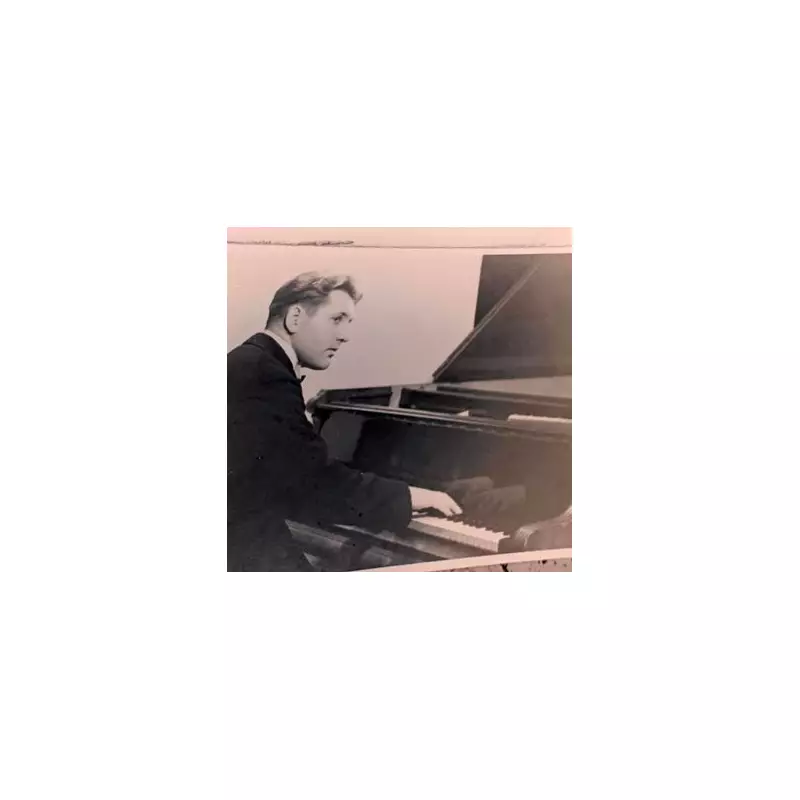
The extraordinary journey of a pianist who performed for Adolf Hitler before escaping Nazi Germany to build a new life as a church organist in rural Scotland is being revealed for the first time through his personal diaries.
From Hitler's Court to Scottish Sanctuary
Walter Hamböck, once known as 'Hitler's pianist', became the popular organist at Strichen parish church in Aberdeenshire in 1962. Congregants had little idea that the quiet musician had undertaken an incredible escape from a concentration camp before finding peace in the idyllic Scottish countryside.
His survival seemed miraculous after the Third Reich turned against him, despite his regular performances for senior Nazi officials. Hamböck genuinely believed he would face execution before being sent to Dachau concentration camp, yet managed a daring escape in disguise that changed the course of his life.
The Rise and Fall of Hitler's Pianist
Born in Vienna, Hamböck's musical talent brought him to the attention of the Nazi elite in 1936 when two of the regime's most feared figures - Hermann Goering and Joseph Goebbels - attended his recitals at Berlin's Kaiserhof hotel, directly opposite the Reich chancellery.
The young pianist recalled possessing a copy of Hitler's Mein Kampf inscribed with a personal dedication: 'To my young pianist friend', signed by Adolf Hitler himself. He noted that Hitler particularly enjoyed classical compositions, especially Beethoven.
In 1938, Hamböck received an honorary professorship for services to the Reich, presented to him personally by Hitler at the Reich chancellery. He wrote frequently of playing in Hitler's company, establishing himself as a favoured musician within the Nazi hierarchy.
The Performance That Nearly Cost His Life
Hamböck's fortunes changed dramatically in 1940 when he accepted an invitation to perform with a Jewish conductor in Holland. This decision provoked the fury of Martin Bormann, Hitler's private secretary, who threatened to execute him personally.
'He came towards me, pointing a pistol and spluttering: "You play for Hitler and then you play for a Jew!"', Hamböck recalled in his memoirs. Though prevented from shooting him immediately, Bormann had the pianist sent to Dachau concentration camp.
Later transferred to Flossenbürg concentration camp in Bavaria, Hamböck's musical reputation saved his life when he was appointed conductor and organiser of the camp orchestra.
Daring Escape and Scottish Resurrection
Hamböck engineered a bold escape by stealing an SS officer's uniform and walking brazenly out through the main gate. His first wife, convinced he had died in captivity, had remarried during his imprisonment.
He later met Helen Weir, originally from Glasgow, in Berlin and followed her back to Scotland. The couple settled in Aberdeenshire in the early 1960s, where Hamböck found solace playing the organ at Strichen Parish Church.
The Fraserburgh Herald reported at the time: 'Walter Hambock now spends many evenings in the solitude of Strichen Parish Church playing the organ with the memories of Nazism and concentration camps far in the background.'
Locals remembered him for his warmth and friendliness, respectfully accepting that he didn't wish to discuss his past. The couple later moved to Newmains in North Lanarkshire, where Hamböck gave piano lessons until his death in 1979.
His personal accounts were thought lost when his widow died in 1998, but were rediscovered by his goddaughter, Helen Duncan, who now plans to publish them. 'I always promised myself I would finish it, to honour them both', she said.
To his dying day, Hamböck maintained that his decision to perform with the Jewish conductor - who remains unnamed in his memoirs - was the correct one, a choice that nearly cost him everything but ultimately defined his escape from darkness to a peaceful life in Scotland.





